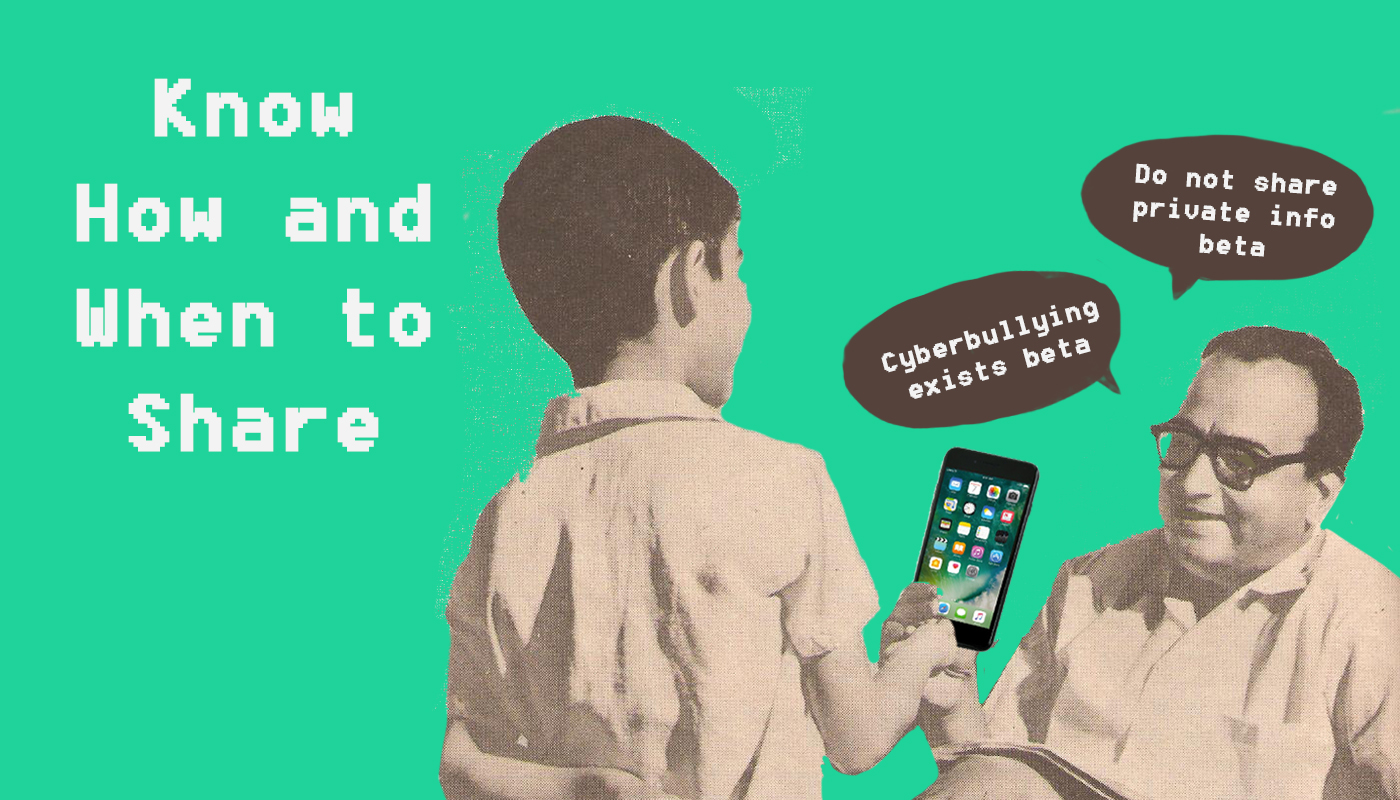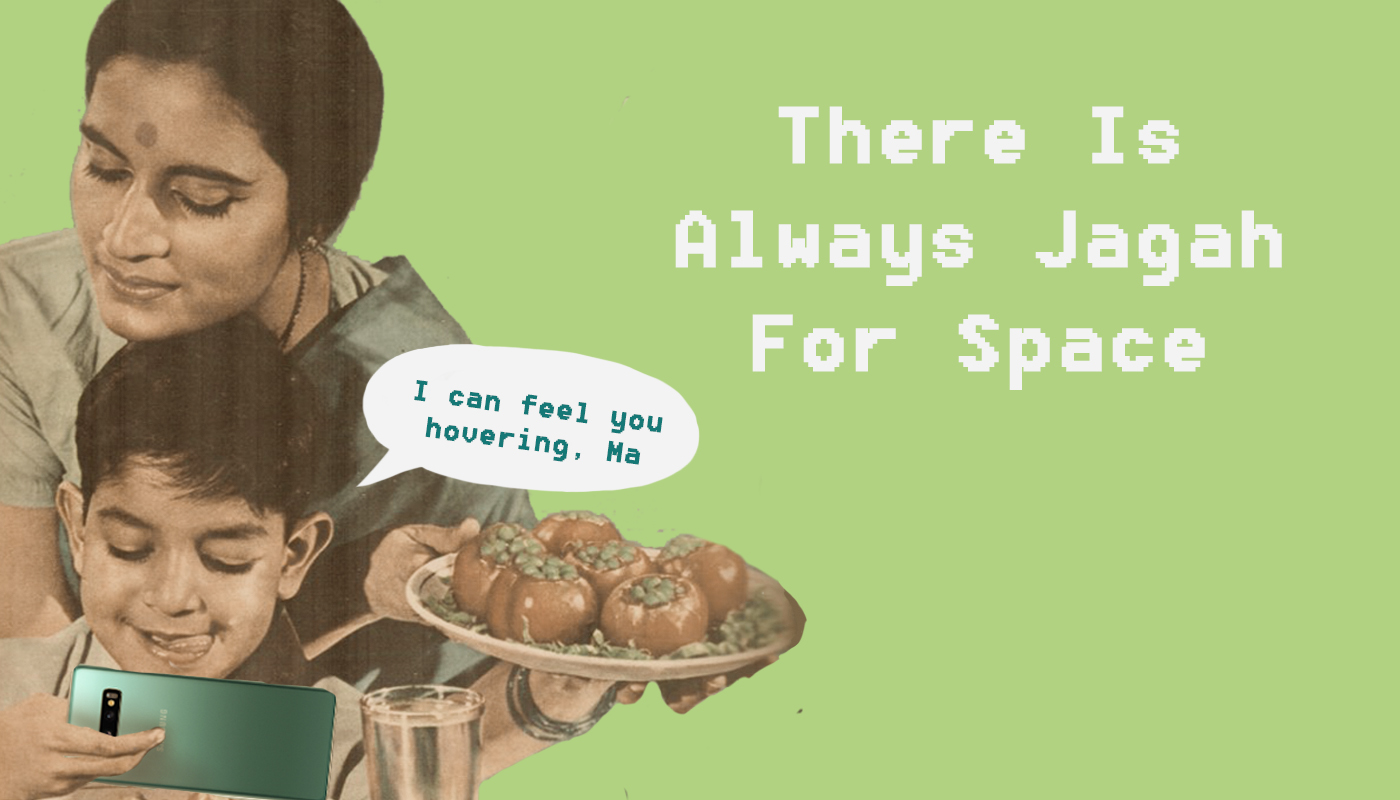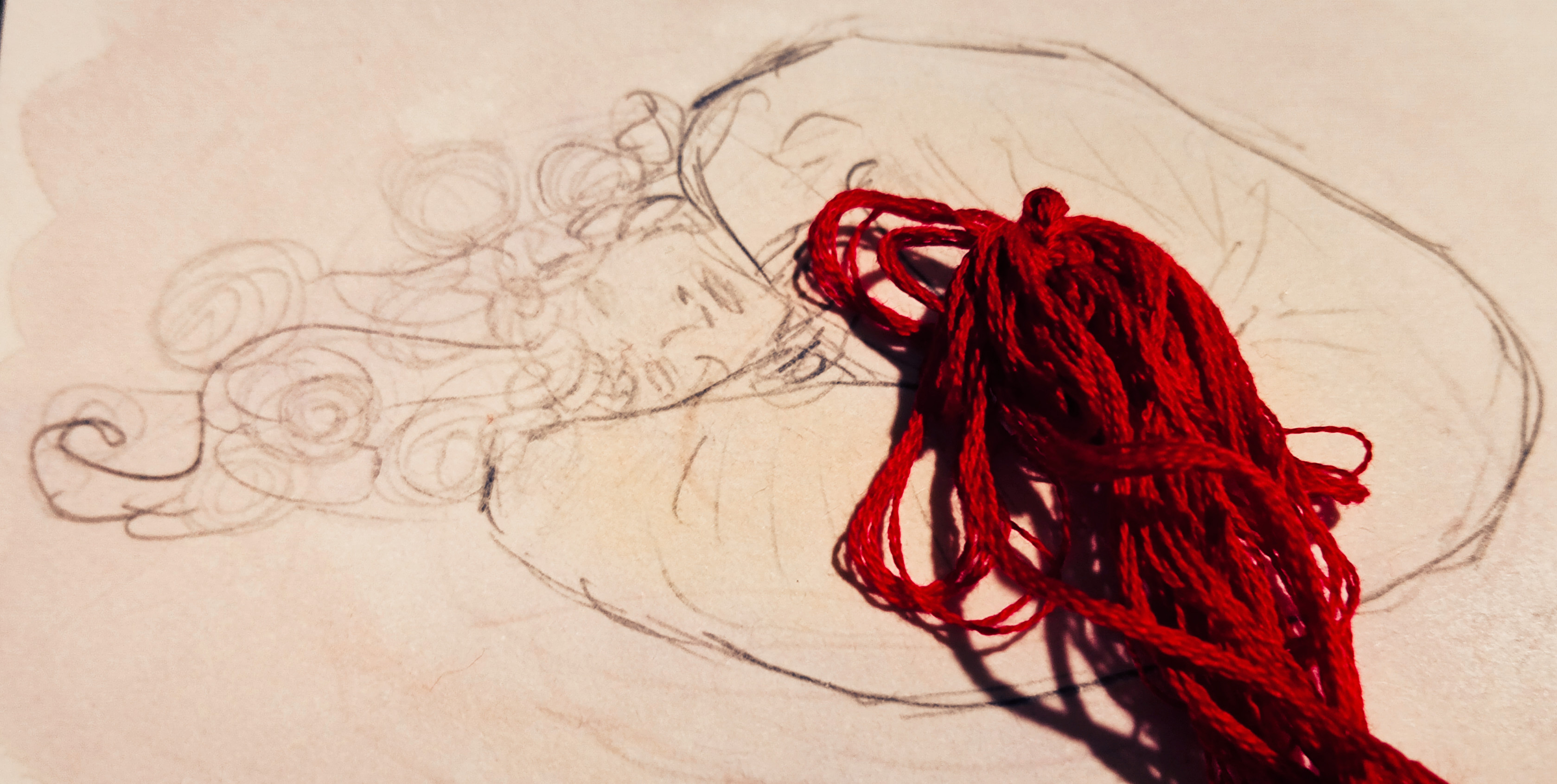2020 ne bohot kuch sikhaya, and also revealed in no uncertain terms that the internet is not a place we go to, but a place that is always tangled up with our everyday life. Online and offline are one phygital reality for us all. Which means it’s a normal part of your children’s lives too - for padhai, for play and for curiosity. Parents are nervous about the internet - and that’s understandable. But think of it this way - traffic is scary and unpredictable too - but we teach our kids how to cross the road and stay safe, right? So maybe we can bring the same approach to helping bacchas navigate the internet. So, parent agents, we say ditch the “Nahiiiin, ma da laadla bigad gaya” approach and adopt some basic safety-net fundas. Keep these Fab Four Fundas in mind
- Key Word: Enable - You are teaching them how to use the internet - and being safe while at it. Not treating it like terror island
- Khush raho and safe raho - Don’t enrol in the moral police: it’s not about good/bad, but about safe/unsafe ---just like safe sex, safe touches, and safe digital guftuguoo.
- Protect, don’t prohibit - Watch out for your little one, make sure they have the tools to be able to make up their own minds about things and tackle life their own way, and then let them go. Shielding them from experiences will not help them grow.
- Stand by me not with me - Through thick and through thin, make sure your child knows you are always, 100% with them. But not literally! Remember your child needs privacy and the more you respect it, the stronger their sense of self ability to exercise consent.
With those principles in mind here are some practical tips to help your kid and you chart a meaningful internet journey.  Like most new things, bite-sized, age-appropriate doses are the way to go. If your kid is starting out in the digital world, a good way to begin might be to introduce them to the online kingdom yourself. You could begin by showing them how to access the chat feature on their online games, how to google questions, the use of social media apps, everything that you regularly use on your phones. Show them that you know the space, and are open to it. As your kids grow up, ease them into accessing the internet tijori by themselves--give them their digital freedom. Let them begin to do the smaller things - making an instagram account, a payment on Amazon, or buying a paid app by themselves. Basically, show them that you trust them!
Like most new things, bite-sized, age-appropriate doses are the way to go. If your kid is starting out in the digital world, a good way to begin might be to introduce them to the online kingdom yourself. You could begin by showing them how to access the chat feature on their online games, how to google questions, the use of social media apps, everything that you regularly use on your phones. Show them that you know the space, and are open to it. As your kids grow up, ease them into accessing the internet tijori by themselves--give them their digital freedom. Let them begin to do the smaller things - making an instagram account, a payment on Amazon, or buying a paid app by themselves. Basically, show them that you trust them!  It’s good to familiarise yourself with some pitfalls, so you can be more watchful. Cyberbullying is bullying that takes place digitally, over phones and the internet, sometimes by people in your child’s circle and other times by strangers. Cyberbullying can happen at all times--even when your child is alone. Doxing/doxxing means leaking (dispersing) of information that is private or personally identifiable. Conversation is key to help your child maneuver through these very real possibilities. You could begin by having an open conversation with your child about cyberbullying, stalking, doxing, and trolling, and their risks. A conversation about privacy information - not staying signed into devices, not sharing with strangers details such as phone numbers, addresses and their location, might be another way to show them tips to safe internet-ing. Another tip here would be to let them imbibe the idea that “don’t do anything online, that you wouldn’t offline.” Cyberviolence is often a result of the anonymity the digital world permits, and showing your child that this is not always beneficial, might be a way for you to help them understand the signs of bullying and doxing. This page could have some more useful information on cyber-violence and navigating the digital space: http://aarambhindia.org/knowing-risks-cyberbullying-cyberstalking-trolling-doxing/
It’s good to familiarise yourself with some pitfalls, so you can be more watchful. Cyberbullying is bullying that takes place digitally, over phones and the internet, sometimes by people in your child’s circle and other times by strangers. Cyberbullying can happen at all times--even when your child is alone. Doxing/doxxing means leaking (dispersing) of information that is private or personally identifiable. Conversation is key to help your child maneuver through these very real possibilities. You could begin by having an open conversation with your child about cyberbullying, stalking, doxing, and trolling, and their risks. A conversation about privacy information - not staying signed into devices, not sharing with strangers details such as phone numbers, addresses and their location, might be another way to show them tips to safe internet-ing. Another tip here would be to let them imbibe the idea that “don’t do anything online, that you wouldn’t offline.” Cyberviolence is often a result of the anonymity the digital world permits, and showing your child that this is not always beneficial, might be a way for you to help them understand the signs of bullying and doxing. This page could have some more useful information on cyber-violence and navigating the digital space: http://aarambhindia.org/knowing-risks-cyberbullying-cyberstalking-trolling-doxing/  Be around your bacchas as they learn to play games with online players, or make their first Facebook account. Don’t hover and censor, but be alert and responsive to questions. Set up internet time-restrictions. Especially as they head into adolescence, being possessive about one’s digital space is just as normal as yelling at one’s parents for entering their room without knocking. Your young adult’s privacy is important--it helps them figure out their own identity, and to learn things for themselves. Remember, ban karne se mann karta hai! And they’ll do it secretly and maybe unsafely. So give them the space to do what they see best, while being around for when they need you.
Be around your bacchas as they learn to play games with online players, or make their first Facebook account. Don’t hover and censor, but be alert and responsive to questions. Set up internet time-restrictions. Especially as they head into adolescence, being possessive about one’s digital space is just as normal as yelling at one’s parents for entering their room without knocking. Your young adult’s privacy is important--it helps them figure out their own identity, and to learn things for themselves. Remember, ban karne se mann karta hai! And they’ll do it secretly and maybe unsafely. So give them the space to do what they see best, while being around for when they need you.  From diets to rishtas, balance is everything - so make sure space doesn’t turn into distance. Something to be watchful for is signs of grooming. Grooming kya hota hai? It is when your child starts to build an emotional connection with a stranger or someone they know, who might be using it to later exploit or sexually abuse them. Keep an eye out for mood swings in your child while on the internet, excess addiction, a sudden need for more distance--these could be alarms to tell you your child needs your intervention. If your child starts to become emotionally volatile, comes in possession of electronics you haven’t bought them, or begins to use sexual/violent language that you wouldn’t expect them to know, these could be signs they are being groomed as well. What do you do if you discover they are in contact with an older person who is grooming them? Don’t panic! You could have an open conversation with them, take them to speak to a professional, or for more severe situations, call 1098 (the helpline to CHILDLINE, India--a 24 hour NGO hotline for children) or report specific instances on the POCSO e-box. It would also help to know the legality around digital interactions and harassment, for which you can refer to our digital laws piece.
From diets to rishtas, balance is everything - so make sure space doesn’t turn into distance. Something to be watchful for is signs of grooming. Grooming kya hota hai? It is when your child starts to build an emotional connection with a stranger or someone they know, who might be using it to later exploit or sexually abuse them. Keep an eye out for mood swings in your child while on the internet, excess addiction, a sudden need for more distance--these could be alarms to tell you your child needs your intervention. If your child starts to become emotionally volatile, comes in possession of electronics you haven’t bought them, or begins to use sexual/violent language that you wouldn’t expect them to know, these could be signs they are being groomed as well. What do you do if you discover they are in contact with an older person who is grooming them? Don’t panic! You could have an open conversation with them, take them to speak to a professional, or for more severe situations, call 1098 (the helpline to CHILDLINE, India--a 24 hour NGO hotline for children) or report specific instances on the POCSO e-box. It would also help to know the legality around digital interactions and harassment, for which you can refer to our digital laws piece.  Don’t make unreasonable rules and if they make a mistake - don’t act like it’s the end of the world. Be open to negotiation, conversation and rethinking. This will encourage charcha, and will show them a safe space at home to reveal their feelings. It is normal for your child to be curious about many things - porn among them - don’t shame them or stigmatise the idea of sex, but have an open conversation about what is ok for when they are adults but might be not appropriate at their age. You could also try your hand at parental codes or apps when your child is young, to avoid exposure to things they might not be ready for. Here’s an account of how one mother handled this. However, in the end, you can only walk with them so far, and will have to trust them to be able to run by themselves after a point. Do what you can to give them the ability to make judgements in their own best interest and keep the channels open at all times for them to come to you if something difficult happens. Baaki ka dekha jayega. For more simple suggestions on looking out for your children, check out AOI’s Six Simple Suggestions to Help Parents Look Out For Their Child’s Mental Health.
Don’t make unreasonable rules and if they make a mistake - don’t act like it’s the end of the world. Be open to negotiation, conversation and rethinking. This will encourage charcha, and will show them a safe space at home to reveal their feelings. It is normal for your child to be curious about many things - porn among them - don’t shame them or stigmatise the idea of sex, but have an open conversation about what is ok for when they are adults but might be not appropriate at their age. You could also try your hand at parental codes or apps when your child is young, to avoid exposure to things they might not be ready for. Here’s an account of how one mother handled this. However, in the end, you can only walk with them so far, and will have to trust them to be able to run by themselves after a point. Do what you can to give them the ability to make judgements in their own best interest and keep the channels open at all times for them to come to you if something difficult happens. Baaki ka dekha jayega. For more simple suggestions on looking out for your children, check out AOI’s Six Simple Suggestions to Help Parents Look Out For Their Child’s Mental Health.



































































































































































































































































































































































































































































































































































































































































































































































































































































































































































































































































































































































































































